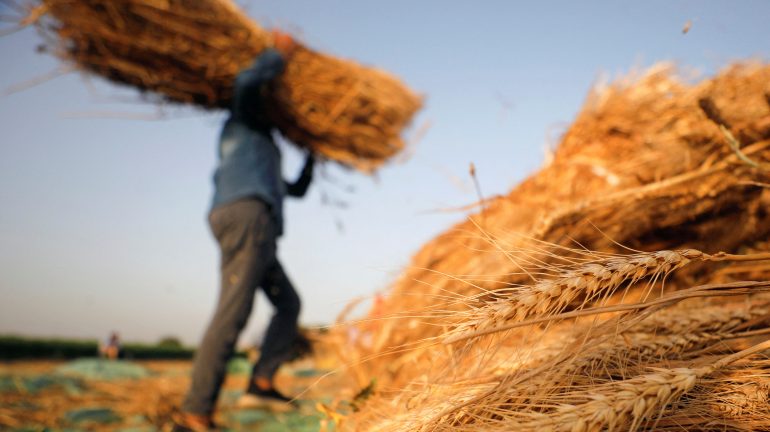The geopolitical aspect of food security in the Mediterranean region
On a global level, the Mediterranean is the scene of numerous geopolitical tensions which are reflected, in part, in agriculture, which is a highly strategic but rather fragile sector. Farming is essential for the life and development of society in the Mediterranean area. In terms of agriculture and food, their value is enormous. The Mediterranean diet, inscribed within the UNESCO list of World Heritage Sites, has been at the core of the basin’s history, health, and political ambition of awakening in the region. The whole world practices the Mediterranean diet, thus giving it a universal character. Paradoxically, in the last two decades, the process of Westernization and Americanization of eating habits has led part of the Mediterranean population to partially abandon this practice, with a respective increase in obesity and diseases linked to the consumption of processed foods and drinks.
It is important to underline the essential role that agriculture plays for the equilibrium of Mediterranean region. Agriculture is not only about food, is about viticulture, horticulture, biofuels, drinks and much more. Food is a primary need for all living beings on earth. Everyone needs to eat and, possibly, several times a day. The big mistake of the political strategies carried out by the governments of the region in the 21st century has been to explain that agricultural practices are something that belong to the past and have little to do with the progress and development of the region. The mainstream idea was to explain that in a country where the GDP, employment and major activities were linked to agricultural purposes, the only consequence was a stable underdevelopment. However, what social dynamics and international relations have been teaching us for about 20 years is the opposite. Countries where the agricultural sector is not well developed are increasingly more vulnerable, that struggle to reach a good level of food security and encounters social risks and frustrations among the most important social categories.
This means that government, as the private sector, must put agriculture back at the centre of future development strategies and, above all, look at farmers as a growth potential, not as social categories locked up in rural areas far from the cities, media, investments or as enemies of climate and sustainability. People around the world are extremely dependent on farmers to satisfy the primary need to feed themselves. In turn, farmers rely on climate change, economic conditions, geopolitical stability, scientific progress, and policy-making processes. This means that often agricultural policy or geopolitical changes could be elements of perturbation for a profession that requires extreme stability and predictability.
In the Mediterranean region, as in many regions around the world, the obstacles to food security are well known, for instance water scarcity, lack of arable land, climate uncertainty, heterogeneous demography, geopolitical instability, internal and external conflicts. But, most of all, there are two variables that are rising as destabilizing factors. The first is climate change, that affect sea and land, impact seasonality, yields, agriculture production, animal, and plant health. The second one, is the geopolitical barometer, where international relations have been strained for a while, particular after the COVID-19 pandemic and the war in Ukraine.
These two catalysts, climate change and geopolitics, have called into question Europe’s internal actions at strategic and external levels. Ukraine has supplied many agricultural products to the Mediterranean basin in recent years. Together with Russia they have developed their international relations through food and agricultural products. For 6 months, the blockade of exports in the Black Sea has put in crisis most of the countries in the Mediterranean region. It must be underlining that Europe was the first to raise the problem of food security at the beginning of the century. But instead of carry on a Mediterranean strategy, strengthening and renewing cooperation in the basins, it turned toward more powerful countries, becoming completely depend on them in terms of agriculture and energy supply, leaving the Mediterranean behind.
So, the real question is if agriculture could in some way mobilize a new Euro-Mediterranean cooperation by putting agri-food issues back at the middle of multilateral cooperation and intra-social relations at national and international level, underlying the importance to choose what to eat as a bastion of world freedom to create a common food identity.
The lack of a political vision and its inability to define an effective agricultural model has been a weakness for Europe and Mediterranean, especially in terms of north-south cooperation. The only countries that have put agricultural products at the core of their international strategies and, most of all in the international markets were Ukraine (GMO-free corn) and Russia. Regulatory convergence at European level together with a renewed agenda towards the Mediterranean region should be the priority for the stability of the European continent and for its commitment to Africa.
Mediterranean countries cannot unilaterally fight these battles given the complexity of the issues. Uniting to change is the only responsible path to face the geopolitical instability. In the short term, the risks are real. It is therefore appropriate to resume the strategies, already outlined in previous years, of cooperation, solidarity, and complementarity in the agri-food sector, in order to ensure a strong food security. However, it is still too early to measure the full impact of the Russian-Ukrainian conflict on the Mediterranean region. The food uncertainty is great, as on the one hand the persistence of the conflict in Ukraine complicates the prediction of future harvests, and on the other, the impact on international wheat production undermines the stability of markets and the ability to supply quantities adequate to meet global food demand.
This post is part of the MedDialogues + 2030 lecture series in which Sébastien Abis gave a talk on the same topic. See video (in French).






